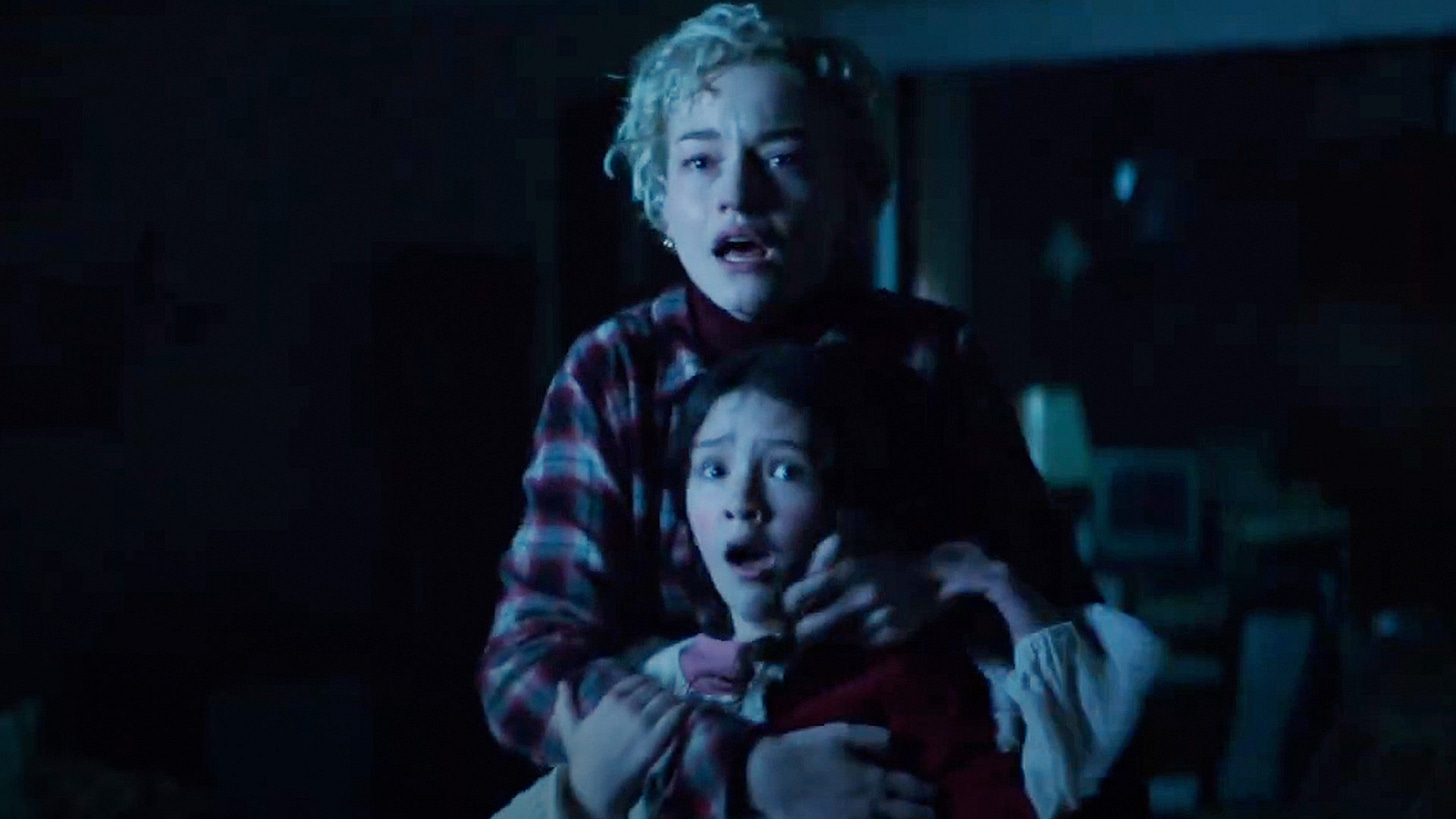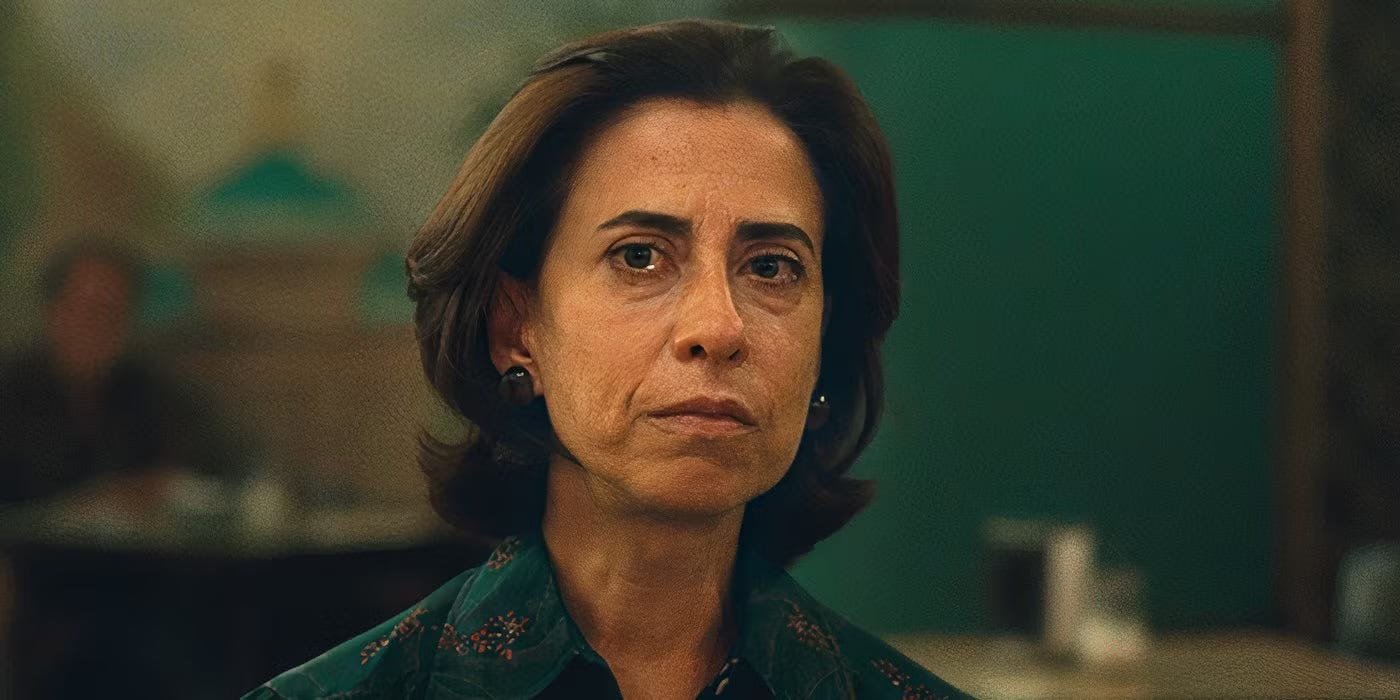In Review: 'Wolf Man,' 'I'm Still Here'
A classic monster gets a revival while the latest from Walter Salles explores a more commonplace threat.
Wolf Man
Dir. Leigh Whannell
103 min.
Sometimes movies make a string of good choices yet end up not working anyway. Leigh Whannell’s Wolf Man, the director’s second take on a character from Universal’s classic stable of monsters, moves the action to a new location—the remote woods of the Pacific Northwest—and reimagines it as a well-cast claustrophobic family drama. Its eerie opening scene, a flashback to the protagonist’s isolated childhood living in a farmhouse with his paranoid dad, sets a tone so unsettling that it takes awhile for the largely dull film to lose it. Signs of life appear from time to time, particularly when the film fluidly shifts from the point of view of its human characters to that of one losing his humanity. But mostly, Wolf Man goes about telling a familiar story in a slightly unfamiliar way with so-so results.
What makes this even more puzzling is how much it has in common with Whannell’s very good The Invisible Man. Both films strip their central monsters down to their core principles. The Invisible Man is about a character who surrenders all moral restraint when the chance of being caught goes out the window. Wolf Man is about the horrors of losing control of one’s mind and body and everything else that makes us human. Both also shift the focus to female characters in danger of becoming victims of the transformed threats. Here, that’s Charlotte (Julia Garner), a big city journalist who agrees to travel with her daughter Ginger (Matilda Firth) and husband Blake (Christopher Abbott) to Blake’s remote childhood home after his father, who hasn’t been seen since disappearing in the nearby woods, is declared dead. But what begins as a family getaway to pack up the old place and say goodbye to it forever takes a turn before they even arrive. After veering off the road to avoid hitting an animal (that’s somehow standing on two legs), they’re attacked and Blake is injured. After making their way to the house, they do their best to set up defenses while Blake’s condition takes a turn for the beastly.
It’s a solid set-up, but the only real compelling moments after the crash involve Blake’s slow-motion transformation, which plays a bit like a lupine twist on David Cronenberg’s The Fly. Abbott and Garner throw themselves into the parts, with Abbott’s soulful eyes serving as a constant reminder of his character’s reluctance to go full monster no matter how sharp his teeth grow, but the film forgets how to be scary after a certain point. That’s surprising, given Whannell’s track record (which also includes Upgrade and many collaborations with his Saw co-creator James Wan), but perhaps not as surprising as the half-assedness of the werewolf effects. Blake turns by degrees, but anyone waiting for him to assume a scary final form that can hold its own next to previous memorable movie werewolves should prepare for a sinking “Is that all there is?” feeling. Actually, everyone should probably prepare to feel that. —Keith Phipps
Wolf Man scratches and claws its way into theaters everywhere tonight.
I’m Still Here
Dir. Walter Salles
135 min.
In 1970, six years after a military coup in Brazil evaporated his post as a congressman and sent him into exile, Rubens Palva returned to Rio de Janeiro with his family, where they lived comfortably in the crowded home close to the beach. Then, one day, representatives from the fascist government whisked him away for questioning over “subversive” activity and his wife and five children would never see him again. Only decades later, once democracy had been restored in Brazil, was his death officially confirmed, but until then, Palva was simply among the “disappeared,” leaving his family in a state of agonizing limbo. For the military regime that ruled the country for 21 years, transparency was not a great priority.
Based on a memoir by his son, Marcelo Rubens Palva, who was a child when his father was taken, Walter Salles’ powerful docudrama I’m Still Here takes its sweet time getting to the kidnapping, which is a narrative strategy that’s key to understanding why Salles is telling this story. On a superficial level, seeing Rubens (Selton Mello) and his wife Eunice (Fernanda Torres) blissfully managing their bright, lively children makes the pain of what’s coming feel that much more acute. Salles has some political context to set up, too, including a crackdown on alleged terrorists who might have ties to the kidnapping of the Swiss ambassador, which had embarrassed the government. But the film is playing a much longer game here, in focusing on how the Palvas—and, by implication, Brazil—can survive this period of uncertainty and grief without losing themselves in the process.
For democracies currently upended by far-right movements—ahem, cough-cough—I’m Still Here serves as both a dire warning in the short term and a hopeful note in the long. But for the first 45 minutes or so, it’s an absolutely gripping tale of injustice visited upon a family that’s targeted by a paranoid, lawless, unaccountable government. Though Salles does well to sketch the Palvas and their children in the early going, his focus eventually lands heavily on Eunice, who’s powerless to stop plainclothes goons from taking Rubens away for “routine” questions. One sign that the inquiry isn’t routine is the presence of three glowering men who watch over Eunice and her kids for the time being. Another sign is that they eventually take her and the eldest daughter in the house to a black site for torture and interrogation.
Returning from a 12-year hiatus after his cooly received adaptation of Jack Kerouac’s On the Road, Salles (Central Station) does well to evoke the cultural undercurrents of Rio in the early ‘70s—not merely the flickers of military oppression, but the music and hippie ethos that still infiltrated the city. But his best decision is to tether the film to Torres’ performance as Eunice, who has to thread the thinnest of needles in complying with the regime’s demands while advocating for her husband and protecting her family. I’m Still Here never gets better than the odyssey Eunice takes after her husband is taken, from the scenes where she calmly accommodates the vile strangers in her home to her own 12-day detainment in a place kept well out of public view.
The problem for Salles is a problem that vexes many true stories: Real life tends to gum up the narrative. After Eunice is released, I’m Still Here never regains the momentum and pace of its first half, because the Palvas adjusting to Rubens’ absence cannot possibly be as compelling as the forces that led to his disappearance. Despite the slackened pace, Salles does succeed in revealing a larger point about Eunice and the tough decisions she makes about how the family can move forward and survive without its beloved patriarch. Regimes may succeed in suppressing resistance for a while, but it can’t suppress humans and families who hold true to their values. The forces of history can be outlasted. — Scott Tobias
I’m Still Here opens this weekend in limited release.









The trailers for the new "Wolf Man" film make it look like shovelware, like Hollywood was legally obligated to make a new generically-titled werewolf movie every 15 years, like how every decade needs to have an unloved Robin Hood movie. That's disappointing after his version of "The Invisible Man" actually had a point of view.
Very eager to see I'M STILL HERE, knowing what a phenomenon it has become in Brazil. https://www.nytimes.com/2024/12/14/world/americas/a-surprise-blockbuster-in-brazil-stokes-oscar-hopes-and-a-reckoning.html?unlocked_article_code=1.pk4.uJ9Q.iEr-ScKe4a_E&smid=url-share